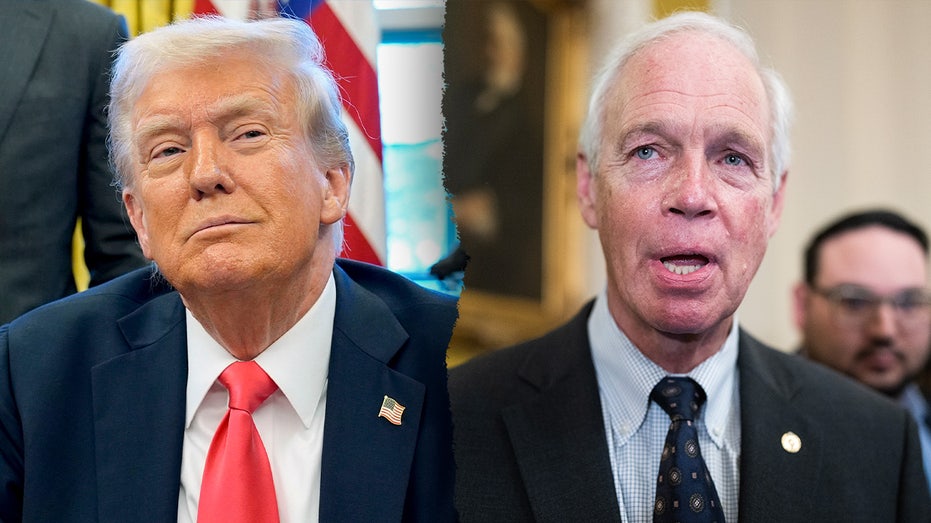Trump Ally Defies Pressure to Support 'Big, Beautiful Bill,' Warns of Backfire
Fiscal hawk Ron Johnson opposes Trump’s budget bill, citing insufficient cuts and lawmakers’ poor grasp of federal spending.

Senator Ron Johnson, R-Wis., has emerged as a staunch opponent of President Donald Trump’s flagship legislative effort, openly declaring that even direct pressure from the president will not dissuade him from opposing what he calls an inadequate attempt to rein in federal spending. As Senate Republicans begin the challenging process of reviewing the House GOP’s proposed budget reconciliation plan, Johnson’s resistance spotlights growing divisions within the Republican Party over how aggressively they should tackle government spending.
“It’ll completely backfire on him,” Johnson said about any efforts by Trump to persuade him to abandon his position. The Wisconsin senator remains resolute, asserting that trillions of dollars in deeper cuts are necessary—far beyond the pre-pandemic spending levels and far greater than what House Republicans have put on the table. The House bill’s target of $1.5 trillion in cuts over ten years falls short for Johnson, who characterizes it as more rhetoric than substance. “They picked a number. Literally, they picked a number out of the air,” he remarked, expressing frustration with the lower chamber’s approach.
While President Trump is eager to see his bill reach his desk, he has conceded that some changes will be required in the Senate. However, Johnson and other fiscal conservatives believe the president’s strategy of courting them with direct appeals or public pressure will not change their votes. Instead, Johnson argues that a more fruitful path would involve collaboration with lawmakers who share his fiscal concerns to create a plan that addresses what he describes as a “grim” fiscal reality for the country.
Johnson’s opposition comes at a critical moment, with the national debt soaring towards $37 trillion. He has consistently warned that the current trajectory threatens the country’s financial future. Despite frequent conversations with Trump—including two this week—Johnson insists that his allegiance to the president does not extend to supporting legislation he believes fails to address the root of the problem. “I want to see you succeed,” Johnson said he told Trump, but emphasized that success requires a bill that genuinely tackles the skyrocketing debt.
The divide within Republican ranks has become increasingly apparent as some in the party push for a rare opportunity to enact substantial spending cuts through the budget process, while others caution against going too far. Johnson contends that many lawmakers lack a full understanding of the federal budget’s scale, recalling previous debates where few could cite basic figures about government spending. To bridge this knowledge gap, Johnson has taken it upon himself to educate his peers, using charts and data to illustrate the stark realities facing the nation’s finances.
Pointing to a recent nonpartisan Congressional Budget Office estimate projecting the current legislation would add $2.4 trillion to the national debt over a decade—a figure widely criticized by Republicans—Johnson argued that even if the estimates contain some uncertainty, the trend is “undeniable.” He concluded, “We can’t accept this as a new normal… you can take pot shots at the CBO, but you can’t deny that reality.”
As the Senate continues its deliberations, Johnson’s steadfast resistance signals that the road ahead for Trump’s “big, beautiful bill” may be far from smooth, particularly as lawmakers wrestle with the challenge of delivering on promises to curtail government spending while facing the political realities of narrow majorities in both chambers.




